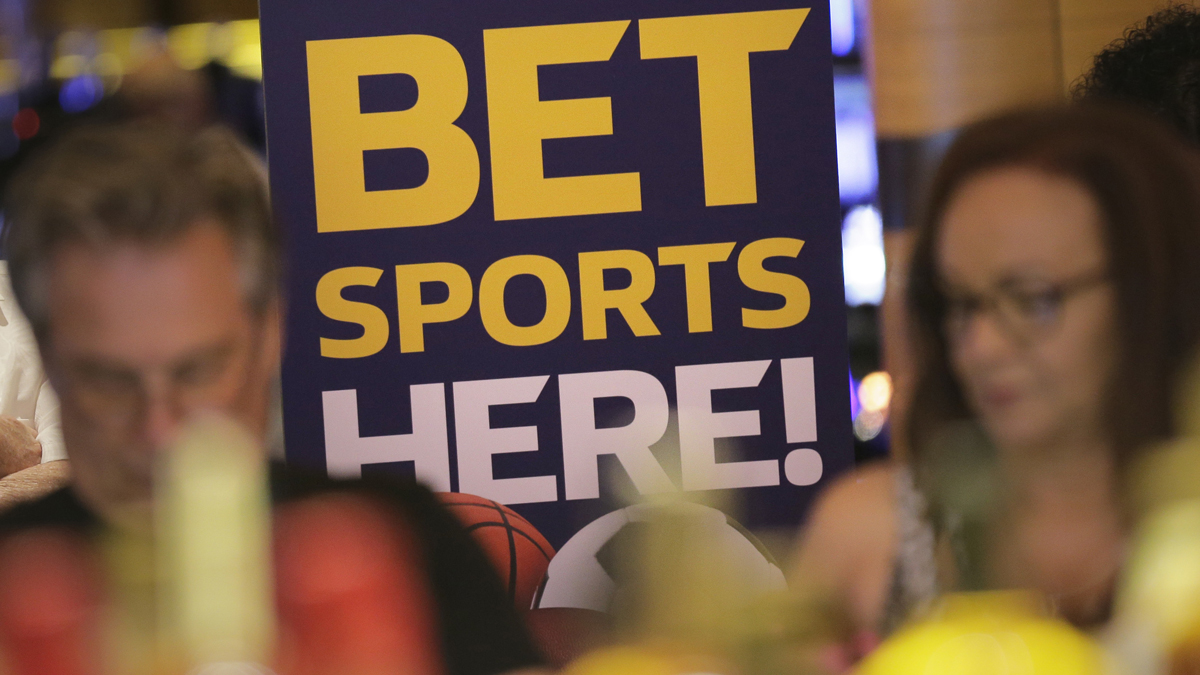The road that leads to a late January start of in-person sports betting is coming into clearer view for the Massachusetts Gaming Commission.
The next month will produce even more crucial information for the commission. Now armed with responses to a survey it asked all prospective applicants to fill out, the commission is starting to get into a regulation review rhythm as it eyes its upcoming license application deadline of Nov. 21.
By its Monday deadline, the commission received 29 completed scoping surveys, a required part of the license application process meant to give commission investigators the chance to start determining which companies and people they need to do background checks of. Three of the submissions came from potential Category 1 license applicants (the three current gaming licensees, which can host in-person betting), three came from potential Category 2 license applicants (Suffolk Downs, Raynham Park and a potential horse racing/simulcasting center in Hardwick, which can also host in-person betting) and 23 came from potential applicants for the maximum of seven Category 3 or mobile betting licenses.
"This level of interest in sports wagering licenses demonstrates what I've been saying in past meetings, that the commonwealth's sports market is an exciting one. That also means that there is a great deal of work to accomplish, from reviewing the suitability of the operations and financials of these prospective operators [to] continuing the regulatory process necessary to stand up sports wagering," Chairwoman Cathy Judd-Stein said Thursday. "I'm confident, and I know my fellow commissioners join me the saying this, that this team will complete this work without compromise to the integrity of the process the public has come to expect of gaming in Massachusetts."
Get Boston local news, weather forecasts, lifestyle and entertainment stories to your inbox. Sign up for NBC Boston’s newsletters.
Commissioners earlier this month agreed to designate "late January" as the launch date for Category 1 sports betting operators, meaning in-person betting at the state's two casinos and one slots parlor, and to designate "early March" as the launch date for Category 3 or mobile operators. The process for Category 2, which includes the state's two simulcasting centers, is on hold as the commission awaits more info from those facilities, officials said.
"Development of the regulatory framework has been our primary objective at the moment. And that includes our collaboration with [hired consultant Gaming Labs International]. They're, at the moment, going to be focused on developing the technical standards we've talked about in the past, working on the internal control series ... as well as the development of the sports wagering specific type regulations. So that is or will be shortly underway," commission General Counsel Todd Grossman said. "There's also a series of regulations that we anticipate having prepared for your review next week and in the coming weeks, including subject matters like suitability review, temporary licensure, investigation and licensing fees, license conditions, and matters of that sort."
There was one set of regulations to come before the commission during its meeting Thursday: the detailed rules for sports wagering application requirements, standards, and procedures.
As commissioners dug into the document almost line-by-line, a few stumbling blocks emerged and a friction similar to the kind that marked the timeline-setting meeting returned to the surface. As staff walked commissioners through how the application process would work, some commissioners said they were starting to see some of the things they were concerned about when the implementation timeline was laid out earlier this month realized.
"This is some of the concerns that I raised on that aggressive timeline that we sort of all hashed out a week or two ago," Commissioner Eileen O'Brien said. "This is some of the minutiae that now is cropping up that we need to deal with."
The part of the debate on the regulation that bogged the commission down the most revolved around whether or what parts of an application process would be administratively reviewed for completeness before being handed off to commissioners for consideration, and whether companies that make mistakes on or omit information from their applications should be given a chance to remedy the situation.
Executive Director Karen Wells said that "the ideal process if we had a lot of time" would be to have the commission staff review each submission to ensure that all information and documentation required to be submitted as part of the application is included, similar to a process that happens now when gaming licensees submit information on new executives. But she also cautioned that doing that kind of review and giving applicants time to fix their errors could slow things down, especially if a high number of applications come in for the competitive process for the seven online betting licenses.
"My concern is that, in looking at the timeline, if the team is doing administrative completeness checks -- right now we have [29] that have done the scoping survey -- that potentially delays when it gets to the commissioners and that cuts into their time [for] review," Wells said.
After hours of debate, the commission appeared to settle on a compromise: the commission staff will perform a completeness review for three of the five forms that are part of the application packet, but not of the general application form. The three forms that will be reviewed are the ones that are already used for other gaming licensees and which the commission's staff is used to reviewing. Companies will have 14 days to fix any issues that are identified, but the commission's review of the more general application form could move forward.
It was the second time that commissioners got a look at the proposed application process regulation and, for the second time, commissioners decided the document needed more work before they would be comfortable voting to approve it. That's now expected at a meeting next week.
When the commission voted almost two weeks ago to set targets for the start of legal betting, it put a handful of caveats on its vote, making clear that the "late January" start of retail betting might have to be reconsidered if the staff working behind the scenes to launch betting runs into "extraordinary circumstances" or if significant issues come up in public comments. And the "early March" start of digital betting may be delayed if the commission gets a large number of applications for the seven mobile licenses it can issue.
On Thursday, as the commission was wrestling with what level of administrative completeness review to use, Wells again signaled that the timeline may have to be reconsidered -- or the commission may need to hire additional help -- if the workload proves too much.
"The issue I see is the number, if all 29 are actually going to submit, we may want to have a conversation about about how long that's going to take and our resources. But if, hypothetically, only 10 or 11 or 12, that might be different," she said. "So we may just have to take a pause and be aware that as things progress, we might need to take a look at the timeline and resources."



